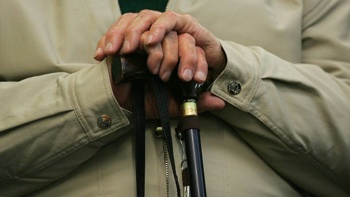Heading the ball has been banned in training for children throughout England, Scotland and Northern Ireland.
A study which showed former footballers were three and a half times more likely to die of neurodegenerative disease than the general population prompted the groundbreaking ban.
While the FIELD study did not state outright that heading the ball caused the brain issues, football bosses want to "mitigate against any potential risks" the Daily Mail reported.
It applies to children up to primary school age. There will be a graduated introduction of heading for kids aged 12 to 16.
The ban does not apply to matches – while training can involve repetitive heading drills there are not a lot of actual headers in youth games.
The American Soccer Federation banned heading the ball in games or practices for players under 11 in 2015. Those aged 11 to 13 can head the ball during matches but there are practice limits, with no more than 20 headers allowed each week.
The ban in England, Scotland and Northern Ireland may have more of a worldwide influence though, coming as it does in an area seen as the home of football.
The 22-month FIELD study by the University of Glasgow's brain injury group found that the Alzheimer's risk was five times, while it was four-fold for motor neurone disease and two-fold for Parkinson's.
The study was based on 7676 pre and post war Scottish league footballers who were over the age of 40 by the end of 2016. They compared medical and death records against a control group of 23,000 people who had not played professional football. The general population mortality rate from brain diseases was one per cent, compared to three for the footballers.
A catalyst for the study was a campaign by the family of Jeff Astle, a former West Bromwich Albion and England player who died at 59 with dementia.
Three of England's 1966 World Cup heroes – Martin Peters, Nobby Stiles and Ray Wilson – were diagnosed with dementia.
And there have been many heartbreaking and concerning reports from professional sport around the world including rugby, league and American Gridiron.
Former Arsenal/Celtic striker John Hartson lauded the Scottish FA for their response to the FIELD study.
"Heading was a massive part of my game," he told the BBC.
"Managers bought me because I could head the ball. There have been some serious situations where players have lost their lives and ex-legends suffering from dementia."
Director of Research at Alzheimer's Research UK Dr Carol Routledge said: "The recent FIELD study highlighted an increased dementia risk for ex-professional footballers in Scotland.
"'While we don't yet know the cause or causes of this increased risk, limiting unnecessary heading in children's football is a practical step that minimises possible risks, ensuring that football remains as safe as possible in all forms.
"We need to see more research in order to unpick any link between football and dementia risk but until we know more, making sure the nation's best loved game is played as safely as possible is a sensible approach. Only through sustained investment in dementia research will we keep people connected to their families, their worlds and themselves for longer."
Take your Radio, Podcasts and Music with you









